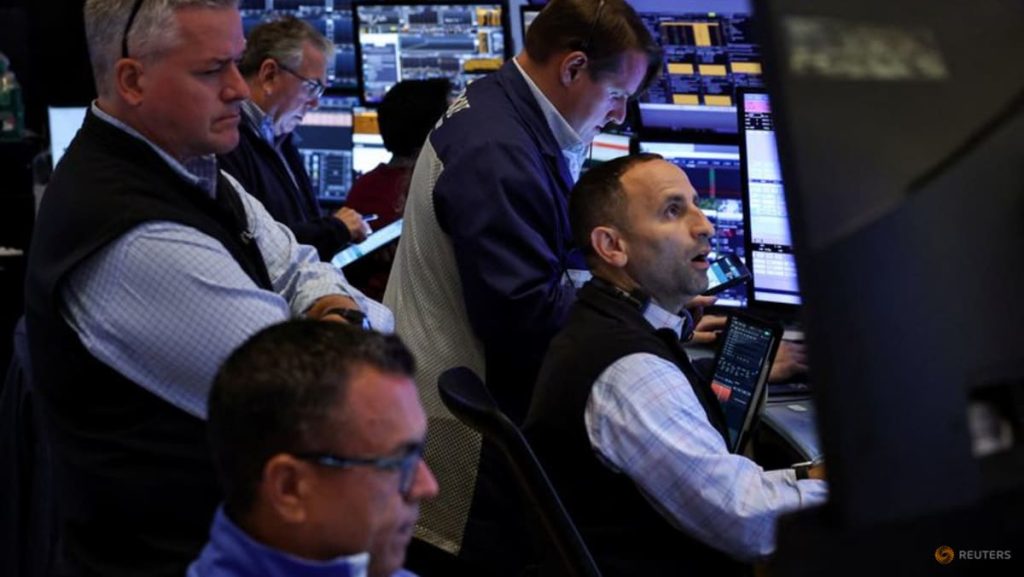NEW YORK/LONDON : A global index of stocks was higher on Monday while the dollar fell broadly – but gained against the yen – as investors grappled with political uncertainty in countries from Japan and Indonesia to France and Argentina.
A heavy election defeat for Argentine President Javier Milei’s ruling party in Buenos Aires province sent the Argentinian peso to a record low, down as much as 7.5 per cent.
Argentine stocks plunged more than 10 per cent – headed for the sharpest daily drop since March 2020 – raising uncertainty ahead of a key October vote.
Japanese Prime Minister Shigeru Ishiba resigned on Sunday, ushering in a potentially lengthy period of uncertainty at a shaky moment for the world’s fourth-largest economy, prompting the yen to fall against the dollar.
France’s fourth prime minister in less than two years, François Bayrou, looked set for defeat in a confidence vote on Monday, tipping the euro zone’s second-biggest economy further into political and economic paralysis.
And in Indonesia,stocks gave up early gains to finish lower, while the rupiah rose, after Finance Minister Sri Mulyani Indrawati was ousted in a cabinet shake-up.
Friday had seen weaker than expected U.S. labor data for August, which appeared to seal the case for a Federal Reserve interest rate cut this month.
The prospect of a cut and optimism that U.S. inflation data due later in the week would be benign pushed down U.S. Treasury yields for the fourth straight day, to their lowest level since April.
“The weakening dollar against most currencies is boosting returns in foreign stock indices. There are country-by country concerns. But a lot of news in France is priced in and Japan’s prime minister could be replaced by a much more dovish, market-friendly prime minister,” said Gene Goldman, Chief Investment Officer at Cetera Investment Management in the U.S.
US STOCKS SLIGHTLY HIGHER
MSCI’s gauge of stocks around the globe rose 3.36 points, or 0.35 per cent, to 959.07, erasing Friday’s losses, while the pan-European STOXX 600 index rose 0.28 per cent.
Emerging market stocks rose 7.33 points, or 0.58 per cent, to 1,283.41.
MSCI’s broadest index of Asia-Pacific shares outside Japan closed 0.67 per cent higher at 674.48, while Japan’s Nikkei rose 625.06 points, or 1.45 per cent, to 43,643.81.
On Wall Street, on Monday at 10:40 a.m. the Dow Jones Industrial Average was down 7.83 points, or 0.02 per cent, at 45,393.03; the S&P 500 was up 20.18 points, or 0.31 per cent, at 6,501.58 and the Nasdaq Composite was up 176.84 points, or 0.82 per cent, at 21,877.23.
In currencies, the dollar index, which measures the greenback against a basket of currencies including the yen and the euro, fell 0.29 per cent to 97.59, with the euro up 0.24 per cent at $1.1745.
Against the Japanese yen, the dollar strengthened 0.27 per cent to 147.78.
In U.S. Treasuries, the yield on benchmark U.S. 10-year notes fell 2.5 basis points to 4.061 per cent, from 4.086 per cent late on Friday while the 30-year bond yield fell 5.1 basis points to 4.7233 per cent from 4.774 per cent late on Friday.
The 2-year note yield, which typically moves in step with interest rate expectations for the Federal Reserve, fell 1.6 basis points to 3.491 per cent, from 3.507 per cent late on Friday.
Oil prices climbed to regain some of last week’s losses, after OPEC+’s output hike was seen as modest and due to concerns over the possibility of more sanctions on Russian crude.
U.S. crude rose 0.45 per cent to $62.16 a barrel and Brent rose to $65.92 per barrel, up 0.64 per cent on the day.
Gold surged past $3,600 an ounce for the first time on Monday, as soft U.S. labor data reinforced expectations that the Fed will cut interest rates next week.
Spot gold rose 1.37 per cent to $3,635.39 an ounce. U.S. gold futures rose 0.55 per cent to $3,632.90 an ounce.


